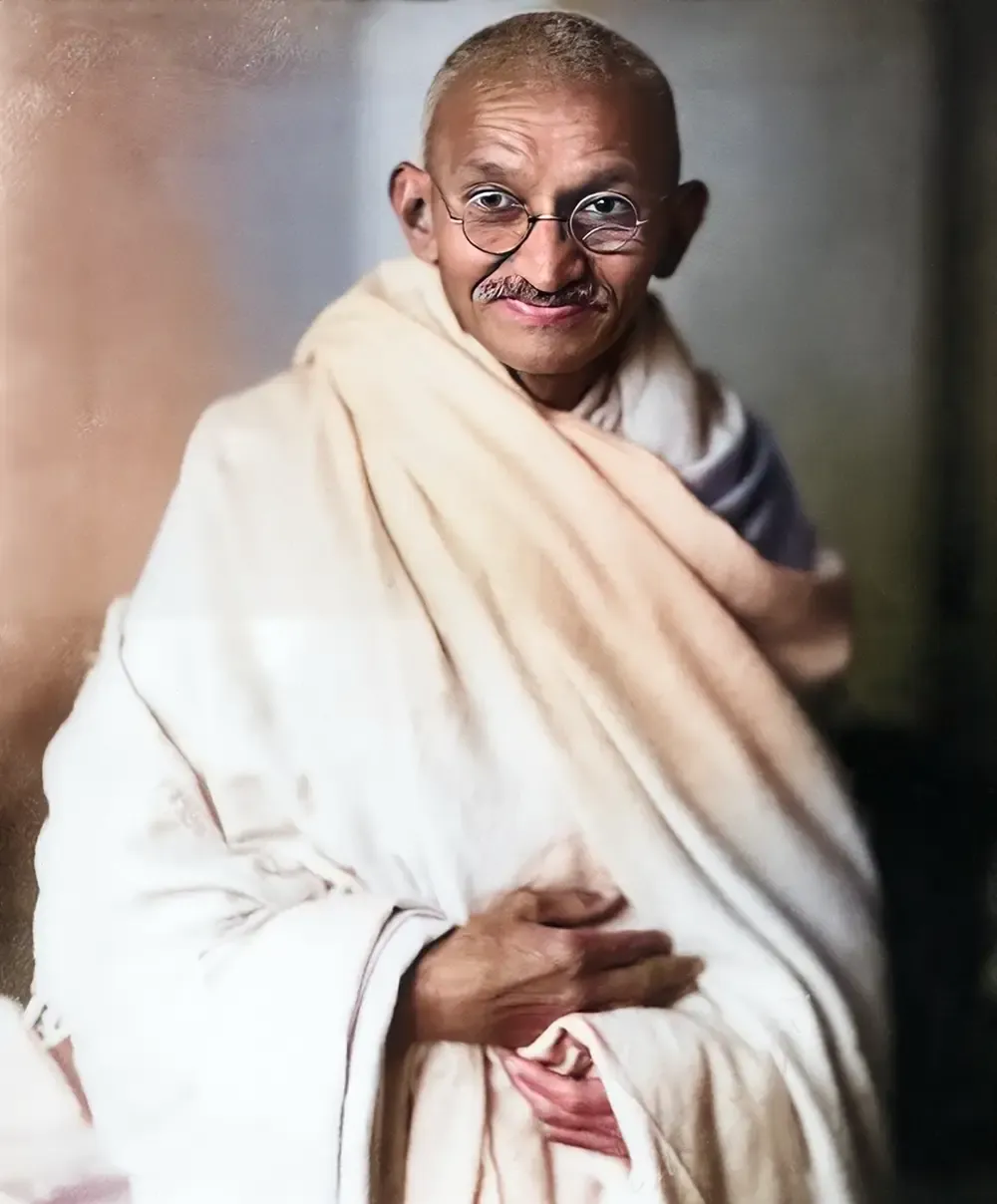Heroes for Freedom: Mahatma Gandhi, — Passage

Mohandas Gandhi, also known as Mahatma Gandhi, was born in India in 1869. At that time, India was ruled by the British Empire. Gandhi believed that India should be independent and that all people should be treated fairly and equally.
Gandhi studied law in England and then worked as a lawyer in South Africa. There, he saw how unfairly Indian people were treated. He began to develop his ideas about using non-violent resistance to fight against injustice. This means standing up for what's right without using violence.
When Gandhi returned to India, he became a leader in the fight for India's independence. He organized many peaceful protests and acts of civil disobedience. One famous example was the Salt March, where Gandhi led thousands of people on a long walk to the sea to make their own salt, which was against British law.
Gandhi's peaceful methods inspired many people in India and around the world. He showed that it was possible to make big changes without using violence. Gandhi is often called "Mahatma," which means "Great Soul" in Sanskrit. His ideas and actions helped India gain independence in 1947 and influenced many other leaders fighting for justice and equality.
Where was Gandhi born?
EnglandSouth AfricaIndiaUnited StatesWhat did Gandhi study?
MedicineLawEngineeringTeachingWhat method did Gandhi use to fight injustice?
Violent rebellionNon-violent resistanceWriting angry lettersHiding from authoritiesWhat was the Salt March?
A protest against unfair salt taxesA celebration of salt productionA race to see who could eat the most saltA new way to make saltWhat does "Mahatma" mean?
PresidentTeacherGreat SoulLawmakerWhat did Gandhi's actions help achieve?
India's independence from British ruleThe invention of new technologyThe discovery of a new continentThe creation of a new religion



















